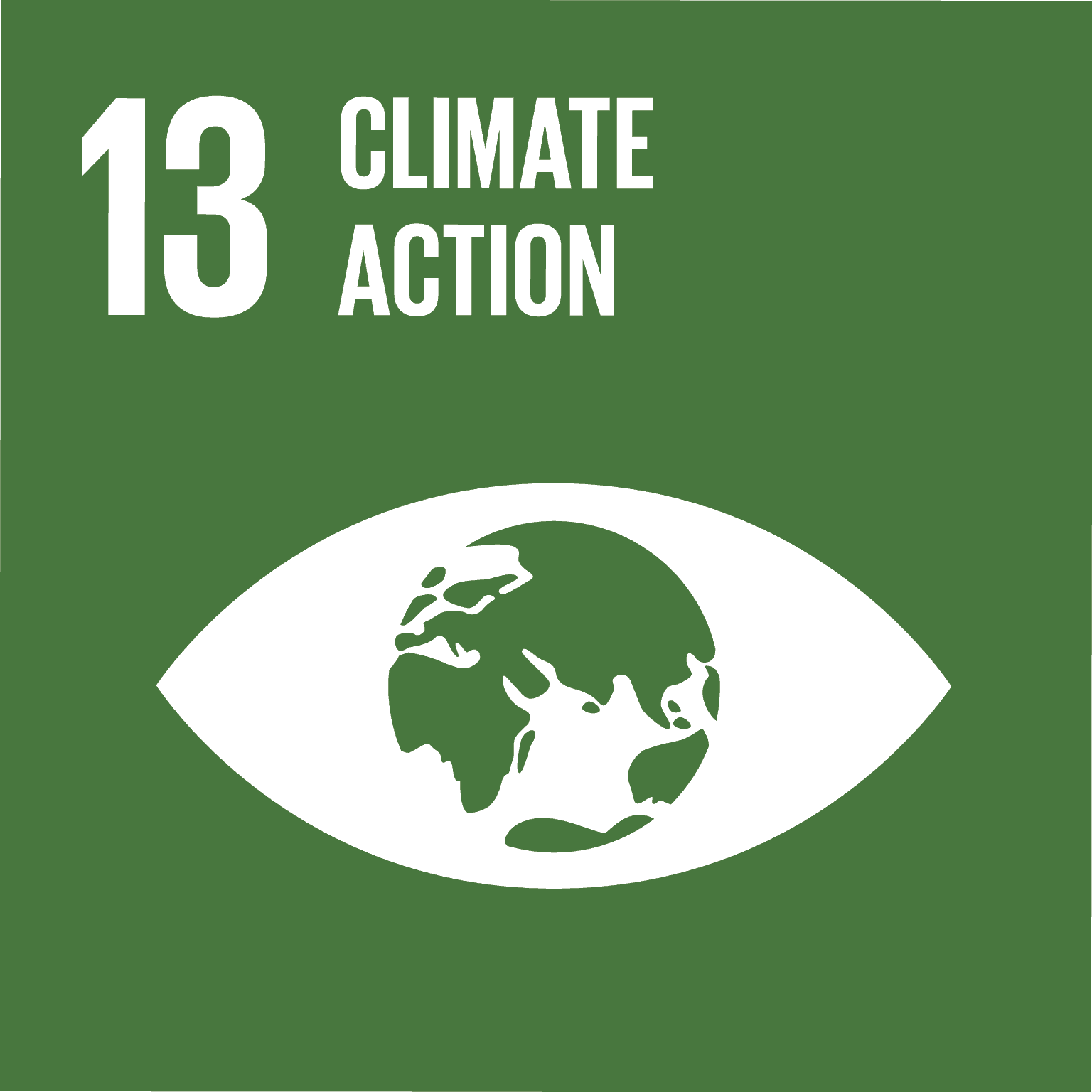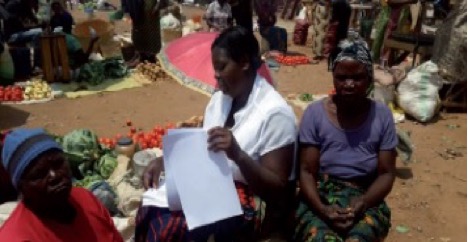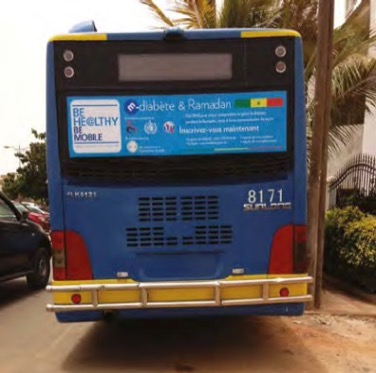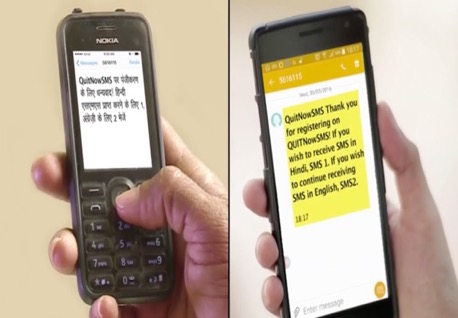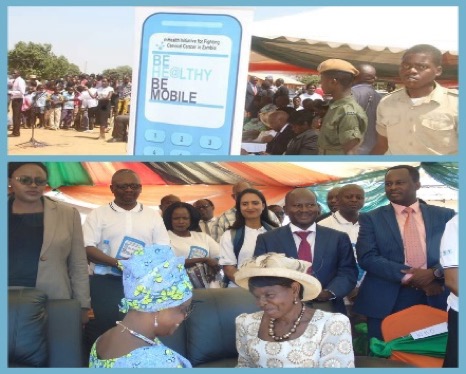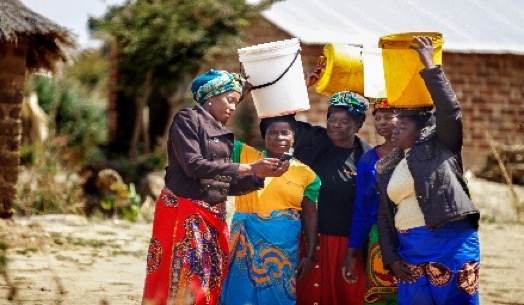BeHe@lthy BeMobile
Integrating mobile health for non-communicable diseases in national health systems
Challenges
Noncommunicable diseases (NCDs), including heart disease, stroke, cancer, diabetes and chronic lung disease, are among the main health risks around the world. Collectively, they are responsible for killing an estimated 41 million people each year. With approximately 71 per cent of all deaths worldwide, they are responsible for more than all other causes of death combined. Low- and middle-income countries are particularly affected, where almost three-quarters of all NCD deaths occur, and 82 percent of those die prematurely or before reaching 70 years of age.
NCDs are the result of a combination of genetic, physiological, environmental and behavioural aspects, and their rise has been driven primarily by four major risk factors: tobacco use, physical inactivity, the harmful use of alcohol and unhealthy diets.
Towards a Solution
The Be He@lthy, Be Mobile initiative uses mobile phone technology to deliver disease prevention and management information directly to mobile phone users and strengthens health systems by providing training to health workers. It provides governments with best practices for mHealth interventions, based on available clinical evidence from trials around the world. It also catalyses the establishment of national and global partnerships to ensure the long-term sustainability of mHealth programmes within national health systems.
Governments can then launch national mHealth interventions, such as mDiabetes in Senegal, using the tools and support provided by the initiative.
The results and experiences of each country’s programme are then fed back into the initiative’s global toolkit and evidence base to support work in other countries.
The World Health Organization (WHO)/International Telecommunication Union (ITU) mHealth initiative for NCDs scales up these already successful and cost-effective technologies, which have been proven at a pilot level, and make them available to the world. The initiative harnesses proven technologies, made available to low- and middle-income countries to enable them to address their burden of NCDs by validating technology for results, quality assurance and its cost effectiveness. Furthermore, the initiative helps in developing cost-effective tools and devices, and innovative solutions as catalyst from the private sector and academia, working together with governments to provide necessary incentives. The initiative is creating standards and guiding principles that enable governments and their citizens to quickly access and adopt the new tools and devices. By focusing on the WHO’s ‘best buys’ for NCDs, this initiative is saving millions of lives and reducing NDCs’ economic burden on the society.
Be He@lthy, Be Mobile is currently being operated in 11 countries from different income groups and interest areas and has received requests for support from over 90 additional ones. Current countries are: Burkina Faso (mTobaccoCessation), Costa Rica (mTobaccoCessation), Egypt (mDiabetes, Mtb-Tobacco), India (mTobacco, mDiabetes), Norway (mBreatheFreely), Philippines (mTobaccoCessation), Sudan, Tunisia (mTobaccoCessation, mDiabetes), United Kingdom (digital health in general), ? (mCervicalCancer, mBreastCancer, mDiabetes), Tunisia (mTobaccoCessation, mDiabetes), United Kingdom (digital health in general), ?as well as the European Union (mHealth, Innovation, KnowledgeHub).
Be He@lthy, Be Mobile supports countries and governments by providing technical expertise to integrate mobile health interventions in their national health systems and sustainably scale it up to the national level. Key tools used to this end include the mHealth handbooks, which consolidate all relevant information and background necessary on: how to set up and run programmes; how to deliver a desired health impact at scale; and how to integrate mHealth with non-digital health services in the form of plug-and-play, ready-to-use options for partners.
For the successful implementation of these services, a multi-stakeholder approach and collaboration with information and communication technology (ICT) providers has been the key. ITU helps in establishing lasting partnerships with telecom operators and provide technical expertise for the creation and implementation of the required operational frameworks. WHO on the other hand, acts as the provider of the health-related content to be used within the scope of the initiative. Together, ITU and WHO work to connect ministries of ICT, ministries of health and mobile network operators to deliver a coordinated response to the NCD epidemic.
Yet, it is important to note that the mHealth solutions implemented through the mHealth for NCDs initiative go beyond NCD prevention and control. As demonstrated during the ongoing COVID-19 pandemic, the mHealth solutions that have been created represent highly functional platforms upon which additional solutions can be built to deliver critical services to populations in need. For example, Tunisia used the mHealth messaging service to inform the public about the COVID-19 threat and to follow-up with inbound visitors to the country to minimize the risk of the virus spread.
Furthermore, under the mHealth for NCDs initiative, ITU and WHO have developed a range of technical materials, toolkits and recommendations that can inform and guide relevant stakeholders in developing and implementing their own mHealth solutions or replicating those that have already been deployed elsewhere. This wealth of knowledge has contributed towards: (i) enhancing country capacities to leverage ICT for the benefit of their populations; (ii) promoting an innovative and multisectoral approach to digital health interventions; (iii) disseminating useful technical standards; and (iv) increasing awareness among the public and the business world of mHealth utility and needs, which can foster innovation and the development of new SDG-relevant products.
South-South cooperation has been a prominent feature of the initiative, since the replication of the mHeath interventions in different countries has been largely made possible by the sharing of experiences of the countries within and beyond regions. Several forums and workshops have been organized within the scope of the initiative where experts from one country have shared their lessons learned with stakeholders from other countries
The initiative has proved highly sustainable as:
- it emphasizes, from the very start, a multi-stakeholder approach for the implementation and the establishment of lasting partnerships (with the full and gradual transfer of ownership to the national governments);
- it is highly cost-efficient due to the high return on investment of preventive NCD policy measures (as per the WHO NCD ‘best buys’) and the multi-functionality of the mHealth solutions created.
Contact Information
Mr Cosmas Zavazava, Chief a.i. Partnerships for Digital Development Department, ITU
Countries involved
Global
Nominated By
International Telecommunication Union (ITU)
Supported By
International Telecommunication Union (ITU)
Implementing Entities
International Telecommunication Union (ITU)
Project Status
Completed
Project Period
2013 - 2021
Sectors
Health
URL of the practice
https://bit.ly/36EfFz7Primary SDG
03 - Good Health and Well-being
Secondary SDGs
03 - Good Health and Well-being
Similar Solutions


